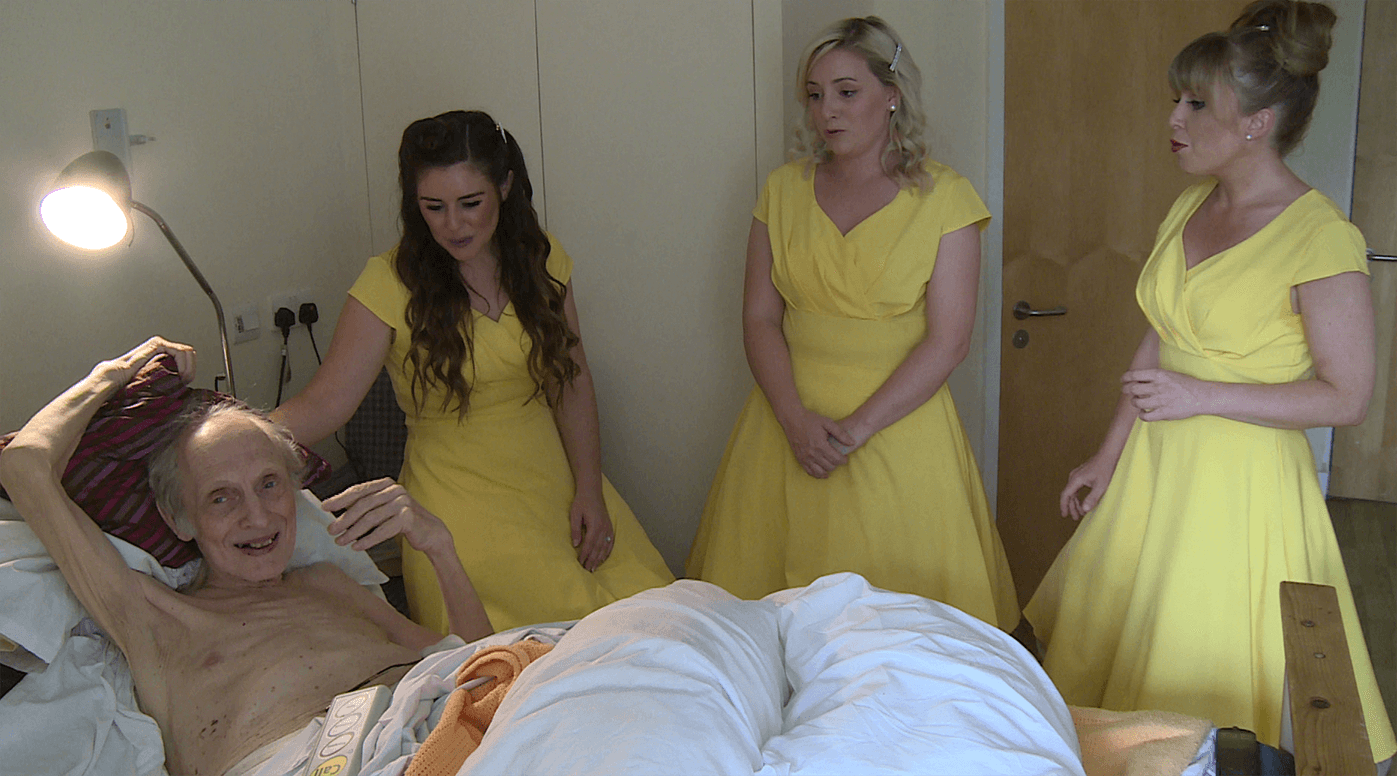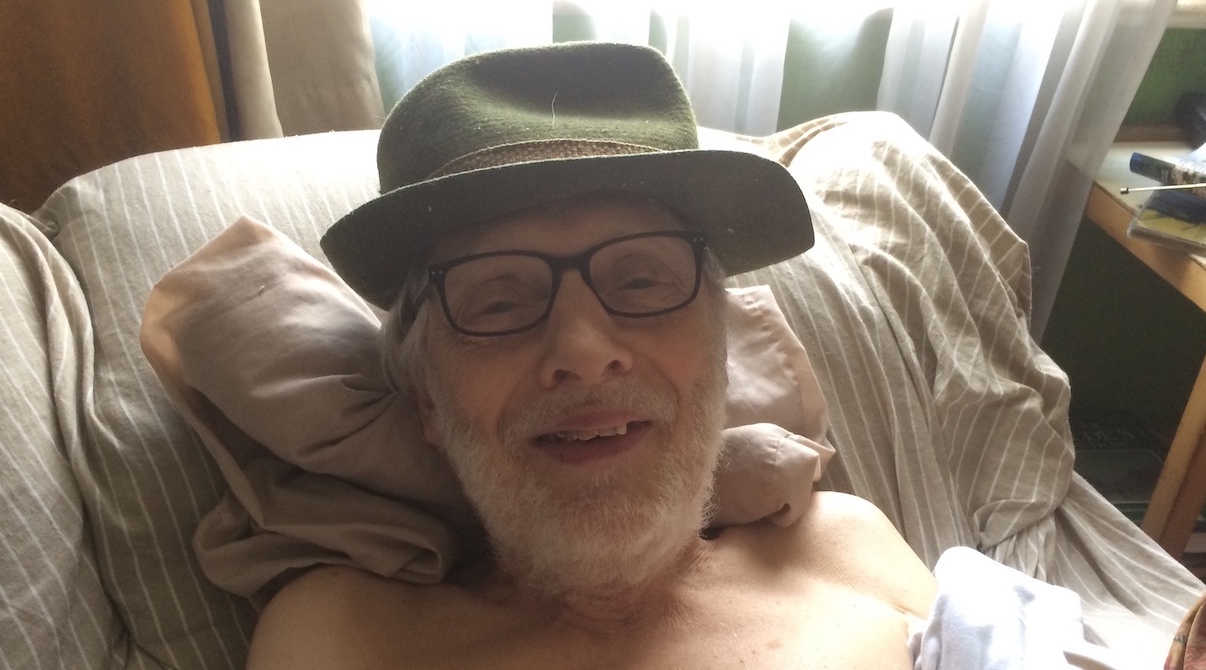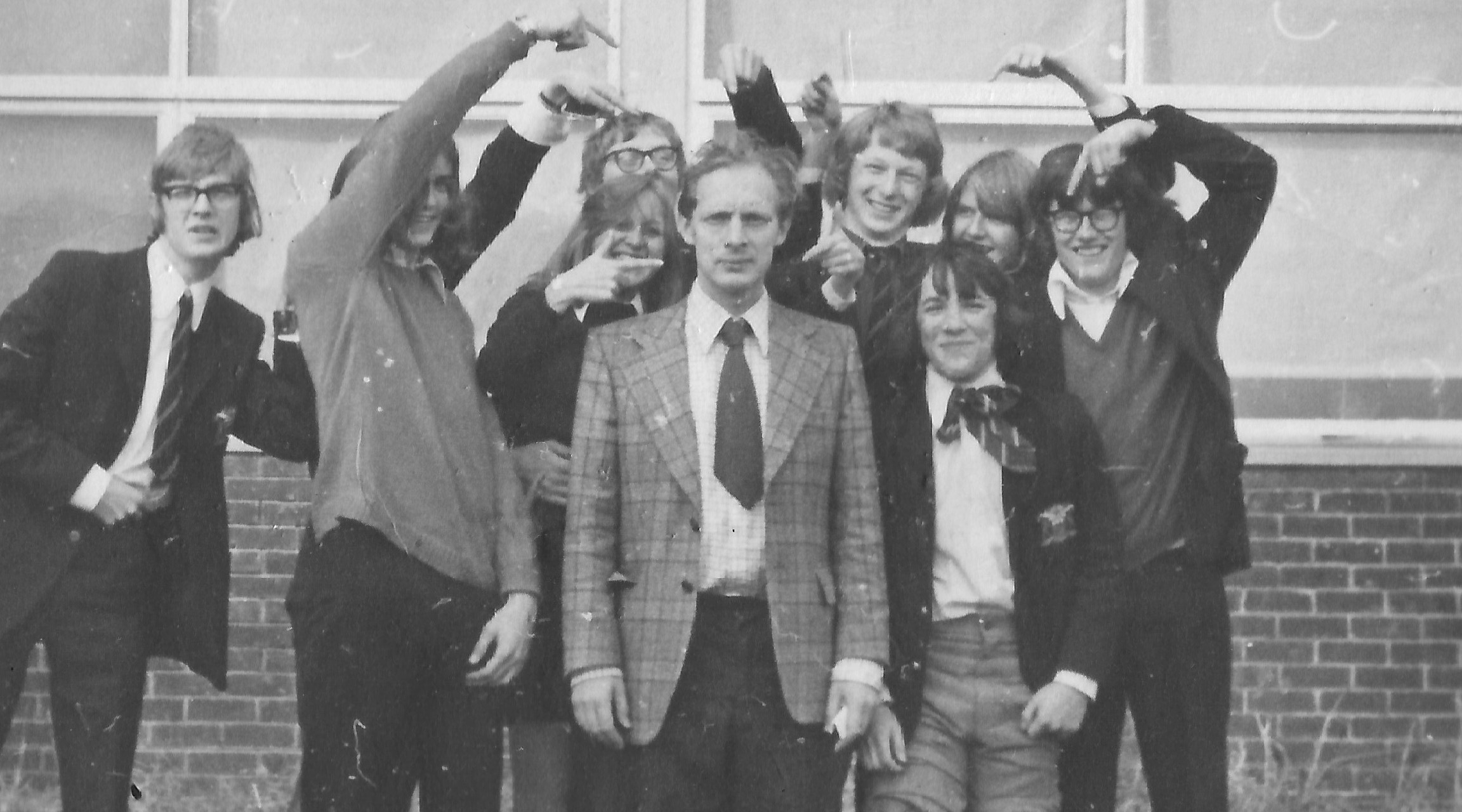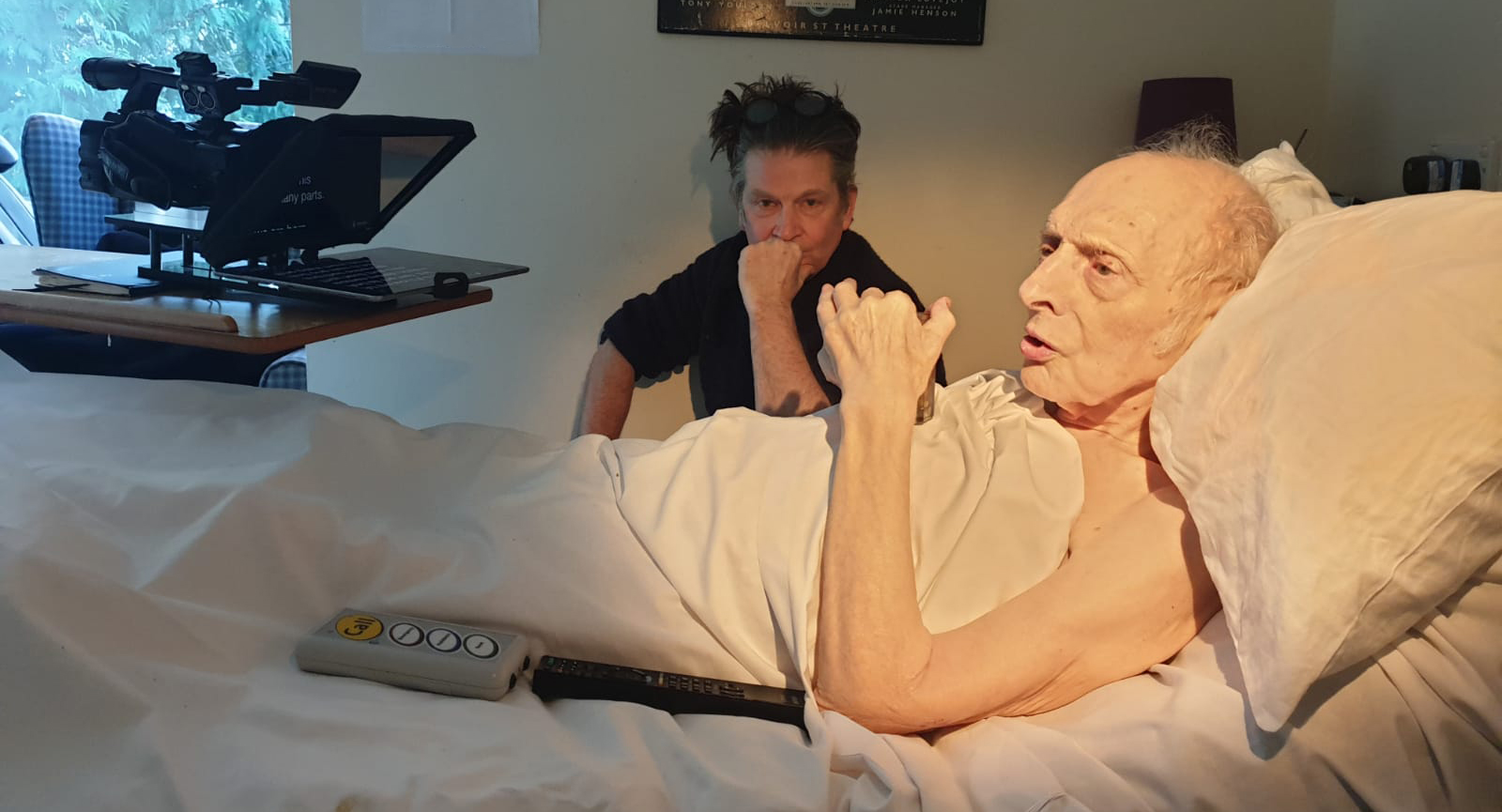
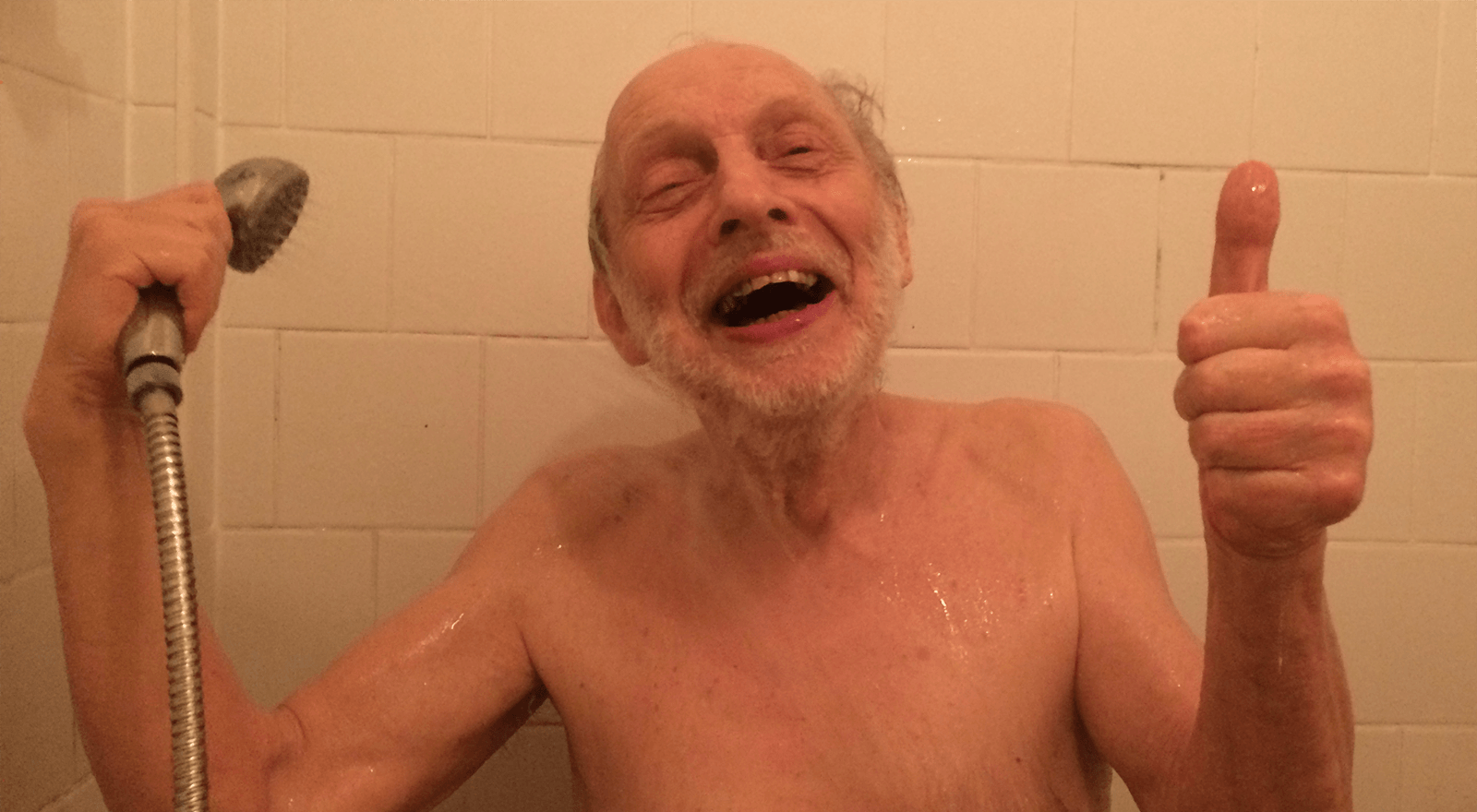




“Death...its like going on the most wonderful holiday, without any of the bother of having to pack."









Simon is shooting a film in India when his Uncle David calls him with a message of doom: “Come back to London, I think I may be dying.” What the viewer doesn’t yet know is that David is a Shakespeare-loving drama queen who has grown old on a diet of attention and applause. But Simon finds his own life drastically interrupted when he returns to try and sort everything out. David has no intention of dying.
As the months turn into years David accidently makes himself homeless, and refuses to go into a care home. While Simon tries to figure out how he can help his anarchic and spirited uncle, David sits in his kitchen reciting King Lear, “It’s the play about an old man becoming infirm, losing his mind and giving his kingdom away” he tells his nephew. Simon soon discovers that his uncle too has been giving away thousands of pounds to a hot young “carer”. As David’s life echoes the play that he loves so much, Simon is left with the challenge of trying to help David find a good ending to the drama that his own life has become.
“...joyous clarity...bittersweet empathy...in this achingly funny-sad film"
-Variety
"In its refreshingly frank look at the end of life, Much Ado About Dying becomes a thought-provoking study of what it means to live."
-Screen Daily
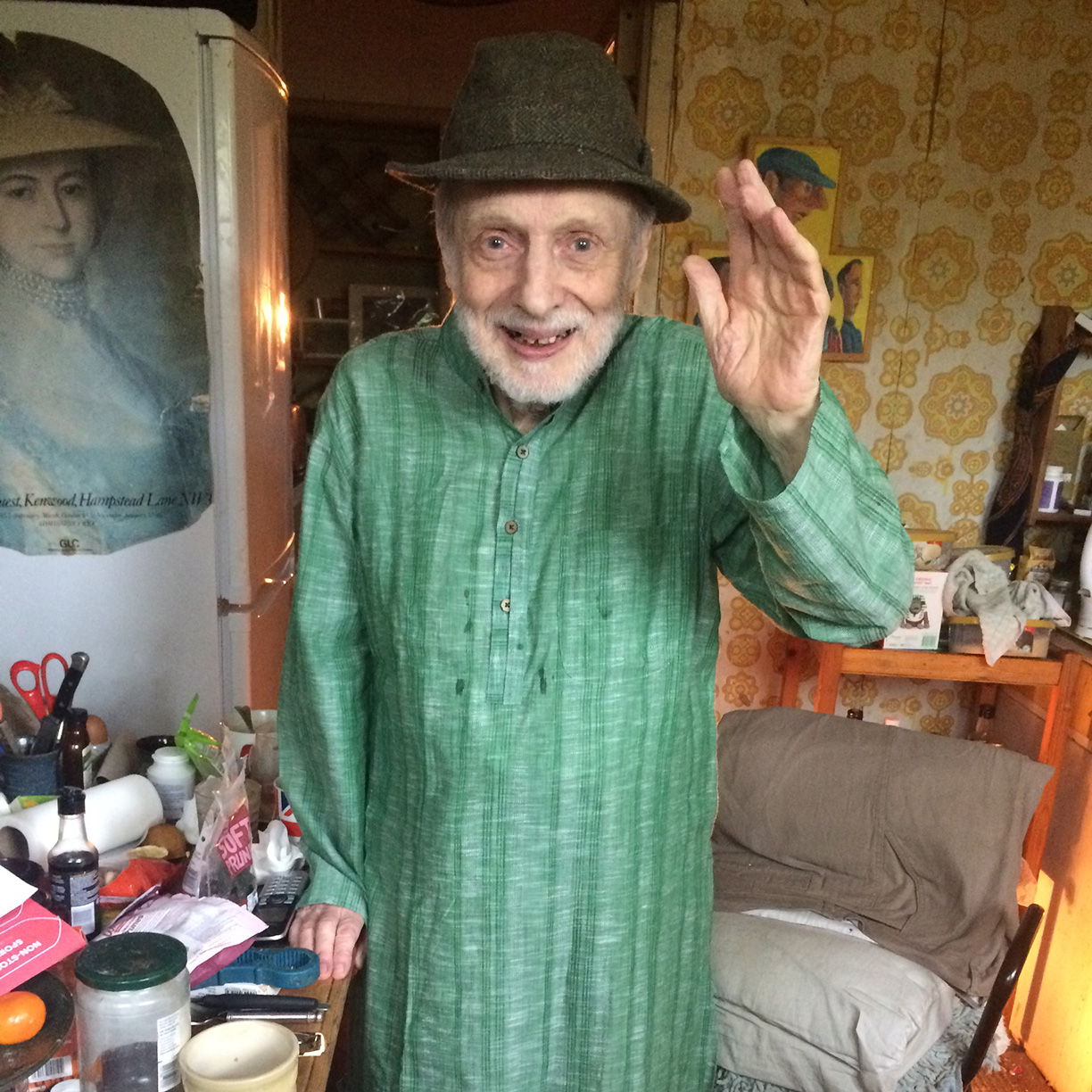
"Chambers’ family-filming-family masterpiece is a tender and often funny chronicle of a dying man who secretes his brilliant charisma..."
-Film Verdict
"the best kind of documentary. It will make you laugh and cry. It will also make you pause for thought."
-Backseat Mafia
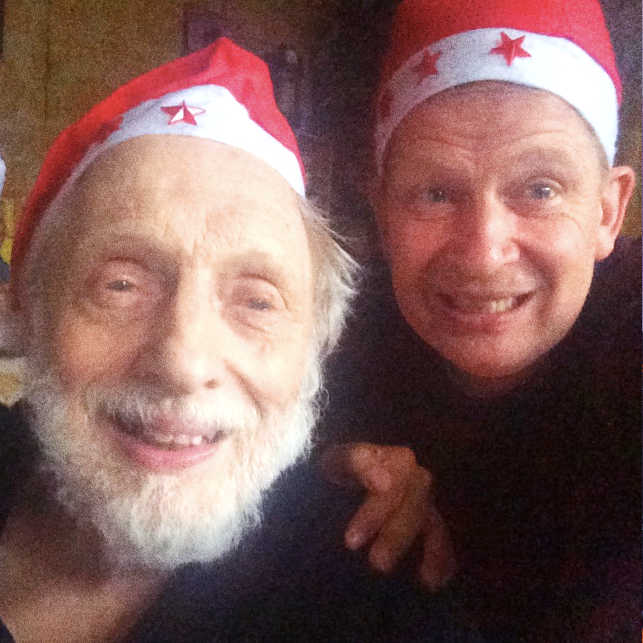
Selected Press
The Guardian, UK, 3 May 2024
Simon Chambers’ film about his late uncle David makes for candid and compelling viewing. Along with one of David’s former pupils, and a fan of his film, he talks care, contempt and infatuation
‘I’ve always liked the company of older people,” says Julian Clary, still smoothly beautiful at 64. “I like the fact they’ve lived a life they are often assumed not to have done.” He pauses. “What old people don’t know about recreational sex,” he continues, cadence familiar as a cuckoo, “you could write on the back of an incontinence pad.”
There are plenty of those knocking about in Much Ado About Dying, a documentary about Clary’s old drama teacher. But David Gale – 86 when we first have the pleasure – does not put them to their intended use. They plug holes in the wall, drafts in the window. One becomes a tea cosy.
His toilet needs are instead met by jam-jars, yoghurt pots and, when necessary, ice-cream tubs: a sort of anarchic incontinence improv which earns an unimpressed reception from district nurses. There’s more. He eats exclusively tinned soup. Toothpaste drapes over every socket (he’s read that mice hate mint). Ailing heaters, propped on stacks of books – Chekhov’s gun klaxon – slow-cook his lower legs like kebab meat. He has four of everything, just in case.
The final straw was the nudity. “David would say: ‘You’re a nurse, for God’s sake!’” says his nephew, Simon. “‘You’re meant to be used to people not having their clothes on!’” But with social services overstretched, and unconvinced of the urgency of Chambers’ case, it was left to his nephew to understudy.
Simon is now releasing a film about the four remarkably eventful years he spent caring for his uncle until the latter’s death in early 2020. It has taken a while – Simon likens it to “a homemade quiche, made in my bedroom on a laptop, which is very much the flavour of David” – and funded entirely by bartering. He refitted one editor’s bathroom; another he got by with just doing their taps.
Much Ado About Dying is a work of uncompromising intimacy and emotional complexity. David and Simon – also gay and single, proud and alarmed about morphing into his uncle – clash and bicker. The cast also includes Rodrigo: a hot, heterosexual “carer” who films a coquettish David in the bath and mysteriously winds up £25,000 wealthier. A Polish couple move in with six dogs and unsustainable promises.
Continue reading at theguardian.com
